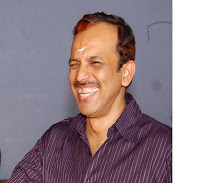"Is this concept scientific ?"
I have been seeing and hearing this above question ever since I started attending school. This validating has reached such a frenzy that even religious concepts are no exception. In fact, in today’s
We note that it is philosophy that is questioned since it is what makes up a religion. Is this process of validation correct ? Is philosophy below science or above it ? Let us see here.
Science
What is science ? Science is the description of naturally occurring phenomena and of comparing the same with universal laws (like law of gravity, law of motion, etc)
Philosophy
Philosophy is the understanding of life, the relationship between man and the creation, finding the answers to some eternal questions like, “why am I born?” , “why am I made this way ?” “why are people not equally born ?” “ why is there so much pain in this world ?” etc and so on.
Validation:
In the eighteenth century, there arose a movement in
The most suffered concept was of God Himself. Science was throwing postulates after another in the form of Big Bang theory, nebula theory and so on and was denying the concept of a creator God. Added to this was the theory of evolution which said that every organism had the capacity to evolve and suggested the possibility of evolution from a single celled organism.
Science or Philosophy ?
The plight of the common man was understandable. He was driven to despair in knowing that the religion he dearly loved is no longer scientific. He pondered over what may be truth. I was also one of such people. My convictions steadied once I saw through the history of science.
What was consistent in the history is that there have been a spate of theories one criticizing another and superseding it. The atomic concept of
What do all the above indicate ? It is, that science is still on its way to finding the secrets of creation and CANNOT be in a position to decide whether a religious concept is correct or not. In other words, science itself is in evolution towards perfection.
In the 18 th century
The greatest drawback in scientific enquiry is that it is an utter flop in matters regarding purpose of life on earth ,the reasons for creation, and the intelligent design of life on this universe. These are BIG questions of life and till date science has never even tried to answer them.
And the tragedy was that the Christian led primitive theories were simply not able to stand the scrutiny of scientific enquiry.
Christian Philosophy and science:
Christianity, with its God in heaven theory, cut a sorry figure. Swamy Vivekananda asked, if God is in Heaven , where is it ? If it is somewhere in this Universe , then you must be suggesting that the heaven is occupying space.
Whatever occupies space is matter. Matter is subject to change. It means birth and death. So the Heaven and God must be subject to birth and death. They become limited, which is absurd.
Their satan theory was far worse. The satan meant that there was another force (and in turn energy) independent of God, thus making God limited. Anything limited is not absolute and hence God , according to the semitic theories, becomes limited.
Einstein proved that the sum total of all energies in this universe at any point of time is the same. The semitic religions never could explain what happens when a man dies. They propagate the concept that this man himself is the spirit. When the creation is one man short, what happens to this universal energy balance ? Does this energy go to God ? And their God in Heaven must be so heavy with all the souls’ energy since the time of creation !
Hindu Philosophy:
On the other hand Hinduistic philosophy answered all questions effectively. Sankara’s advaita shines like a brilliant star among the religious postulates of the world. Sankara said ‘there are no two’. It means, creation and creator are not different. The name of ‘sachhidananda’ (sat-chit-ananda) meaning existence- conciousness- bliss for God is so apt. It means there is existence for none other than this trio of existence – consciousness- bliss.
There is a Vedic Hymn which reads
Purnamada: purnamidam purnAt purnamudachyate |
Purnasya purnamAdAya, purnameva avasishyate ||
(
There is oneness only. No two. Such is the depth and subtlety of Hindu Philosophy.
Also the theory of reincarnation has fantastically explained why there will be energy balance even after death.
Science or Philosophy- which is superior ?
The God theory has one extraordinary condition. Many thinkers attained a stage from where they claim they have unravelled the secrets about themselves, God and creation in general. But without exception they all declared that that experience is beyond the human faculties of senses, mind and intellect !
But people still harp on science being the ultimate judge even in the realm of spiritual philosophy. Swamy Vivenakanda declared thus
“ When that energy from which al the energies of the universe emanate, is found, then all study in Physics will come to a close”
“When that substance is known, from which every other substance is made, Chemistry attains its completion”
“When the source of all thought is found out, psychology will see its perfection”
“When that knowledge is known, knowing which everything is known, the quest of a Gnani is fulfilled”
(the last two are mine)
That endpoint is what Hindu Philosophy calls the “Godhead” or “Realisation”. Science , with its limited tools of inquiry, can scarcely dream of such things.
So what do we conclude ? That Science is Bigger than Philosophy ? It is just the reverse. Science is just a subset of Philosophy. This gives it a due place. That is also the great Indian tradition.




